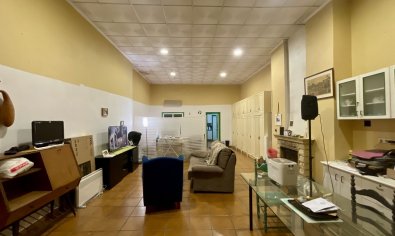Expedited lawsuits against squatters approved - Tenant squatters excluded
Congress approves expedited proceedings for residential burglary, but leaves out civil rent cases
On Nov. 14, the Spanish Congress of Deputies approved a legislative amendment that speeds up the handling of illegal home occupations. The new Law on Judicial Efficiency allows offenses such as housebreaking and residential burglary to be handled through a fast-track procedure. The turnaround time: a maximum of 15 days.
What changes.
If the squatter is arrested, a hearing must be scheduled within 72 hours. If the case proceeds to an oral trial, it must be completed within 15 days, with a ruling within 3 days thereafter.
The aim of the measure: to relieve homeowners and speed up the recall of unlawfully occupied properties.
Criticism of the law: tenant squatters excluded
Although this change is seen as a breakthrough for many homeowners, the law applies only to criminal cases (housebreaking and burglary).
Tenant squatters - also known as inquiokupas - are not covered. These are tenants who refuse to make further payments after paying the first month's rent and security deposit, but continue to live in the property. Legally, they fall under civil law, so eviction can take months to years.
"For these cases, procedures are still slow, with an average processing time of 18 to 24 months," said Jesús Manuel Martínez Caja, legal counsel for AMADEI.
Complex practice among vulnerable residents
According to José Ramón Zurdo, director of the Agencia Negociadora del Alquiler (ANA), eviction is delayed in the case of vulnerable occupants. In such cases, social services must be involved first, which limits the speed of the procedure.
Solutions out of court?
The Agencia Negociadora del Alquiler advocates administrative reforms to complement the new law. Among the proposals:
-
Public rent register: Allows faster identification of non-valid leases
-
Prompt eviction without court intervention for unregistered or fake contracts.
This could deter fraud and occupation via bogus contracts.
Political confusion and the sequel in the Senate
A notable moment during the vote was the unintentional support of Bildu, who later indicated he was mistaken. Despite these reservations, the proposal was approved and now goes to the Senate, where a conservative majority of the PP makes amendments unlikely.
Conclusion
Speeding up lawsuits against squatters is a step forward, but not a comprehensive solution. The current law excludes tenant squatters and provides insufficient protection against fraud through fake leases. Without additional reforms - such as administrative tools and better prevention - the risk of long-term occupancies remains.
































